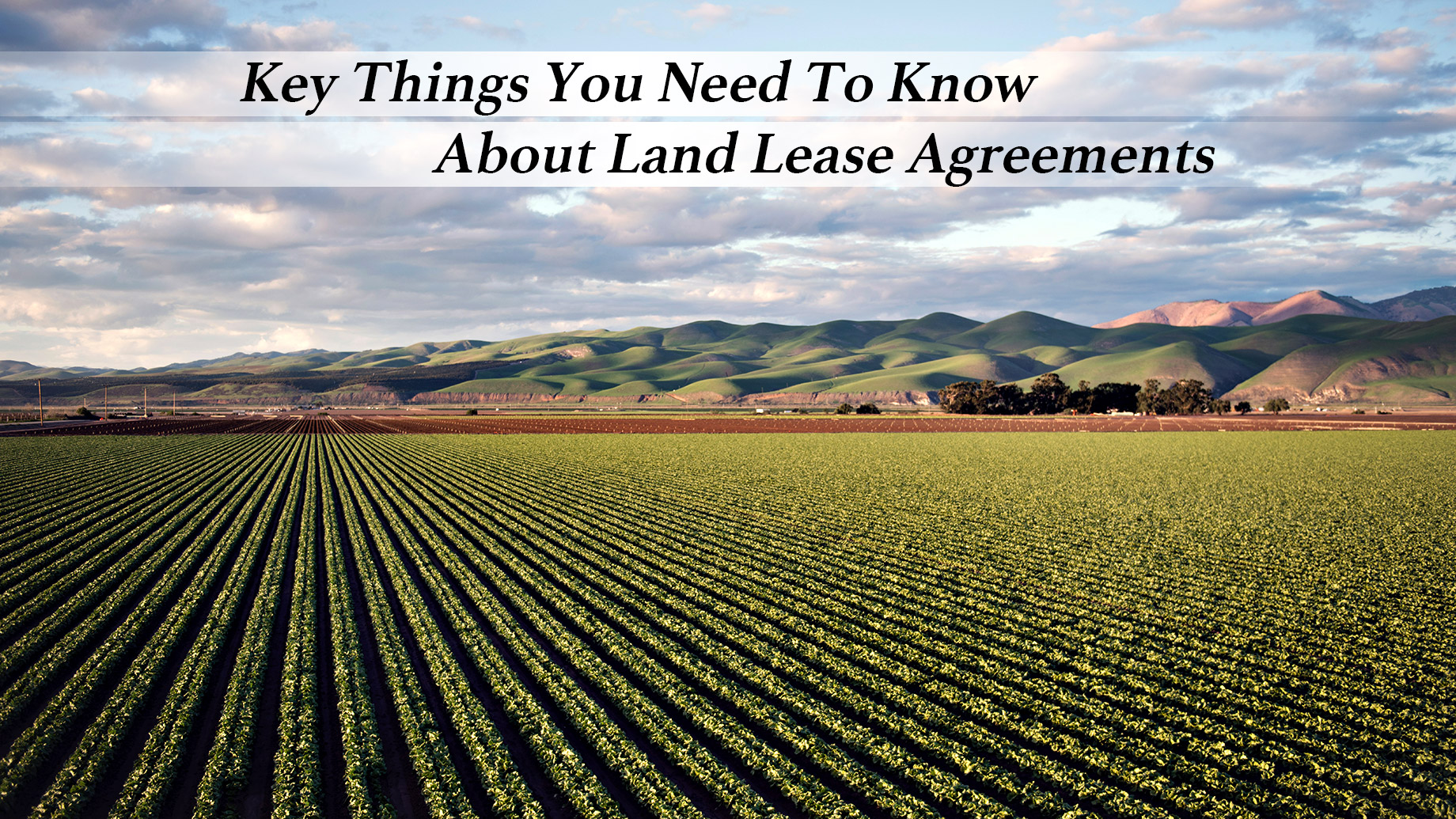
It can be tricky to understand how land-lease agreements work. If you are a landowner or a potential lessee interested in land leasing, it is imperative you comprehend the details. So, to help you get started, here is a fantastic overview of the key things you need to know about land lease agreements.
What is a land lease agreement?
Also known as a ground lease, a land lease refers to leasing a plot of land. It is a type of commercial real estate lease in which a lessee is permitted to build on rented land. A land lease can be used for a wide variety of purposes, though, ranging from commercial to residential to agricultural. A land lease agreement differs from other commercial and residential contracts because it focuses on the land itself and the purpose of permissions and obligations that a lessee has.
As with an ordinary lease, there are two parties involved: the owner of the land and the lessee. The two parties sign a land lease agreement that outlines all contractual obligations and rules. The lessee then pays rent to the landlord on a regular basis. If the lessee does not pay the rent, the landowner has the right to evict the lessee. A free land lease agreement PDF, as well as Agreement Templates, are available online. They can be tailored to the specifics of the transaction the landowners and lessees are conducting. Land leases range between 50 and 99 years.
How Land Leases Can Benefit Both Owners and Lessees
A land lease agreement helps both the landowner and the tenant to save on real estate taxes because land purchase requires higher taxes and other expenses when compared to a land lease. Unlike typical land purchases, an upfront cash payment is not required. That can lower the amount of upfront equity needed to finance the investment. So, a tenant can potentially free up more cash for another investment, and the landowner can receive a steady stream of income from rental payments while still owning the actual property. Another key benefit of a land lease agreement for tenants is it enables them to access lands in prime locations where it is impossible to purchase land outright.
Subordinated Land Lease Agreement
There are two main types of land-lease agreements. They are: subordinated and unsubordinated. With the former, a landowner agrees that the title of the property will be used for a leasehold mortgage for the tenant’s loan on improvements to the property. That is beneficial to the lessee because it can increase their chances of getting a construction loan. However, a subordinated land lease agreement can be risky for the owner. If the lessee defaults on his or her construction loan, the loan could result in foreclosure, and the owner could lose his or her title to the commercial real estate property itself. Due to the riskiness for the owner, he or she may demand an increase in rental fees for the land lease and impose stricter control over the lease transactions.
Unsubordinated Land Lease Agreement
With an unsubordinated land lease agreement, the landowner does not permit the property to be used for a leasehold mortgage. That means there is no risk of foreclosure, so it is a safer option for landowners. If the tenant defaults on the construction loan, the ownership of the land improvement can go to the landowner. It could also increase the leasehold’s fair market value, which is beneficial for owners. Also, with an unsubordinated land lease agreement, the landowner may charge a lower rental fee because the agreement carries less risk.
Land Lease Valuation
Land lease valuation is similar to the valuation processes for other leases and income streams. To establish the current value of the land lease, professional evaluators come up with projections for the lease rate, the escalation schedule, and the terminal value prior to applying a discount rate. That rate primarily depends on the risk profile of the projected cash flow. The risk profile depends on factors like the potential of the location, the tenant’s credit score, and the value and quality of the improvements.